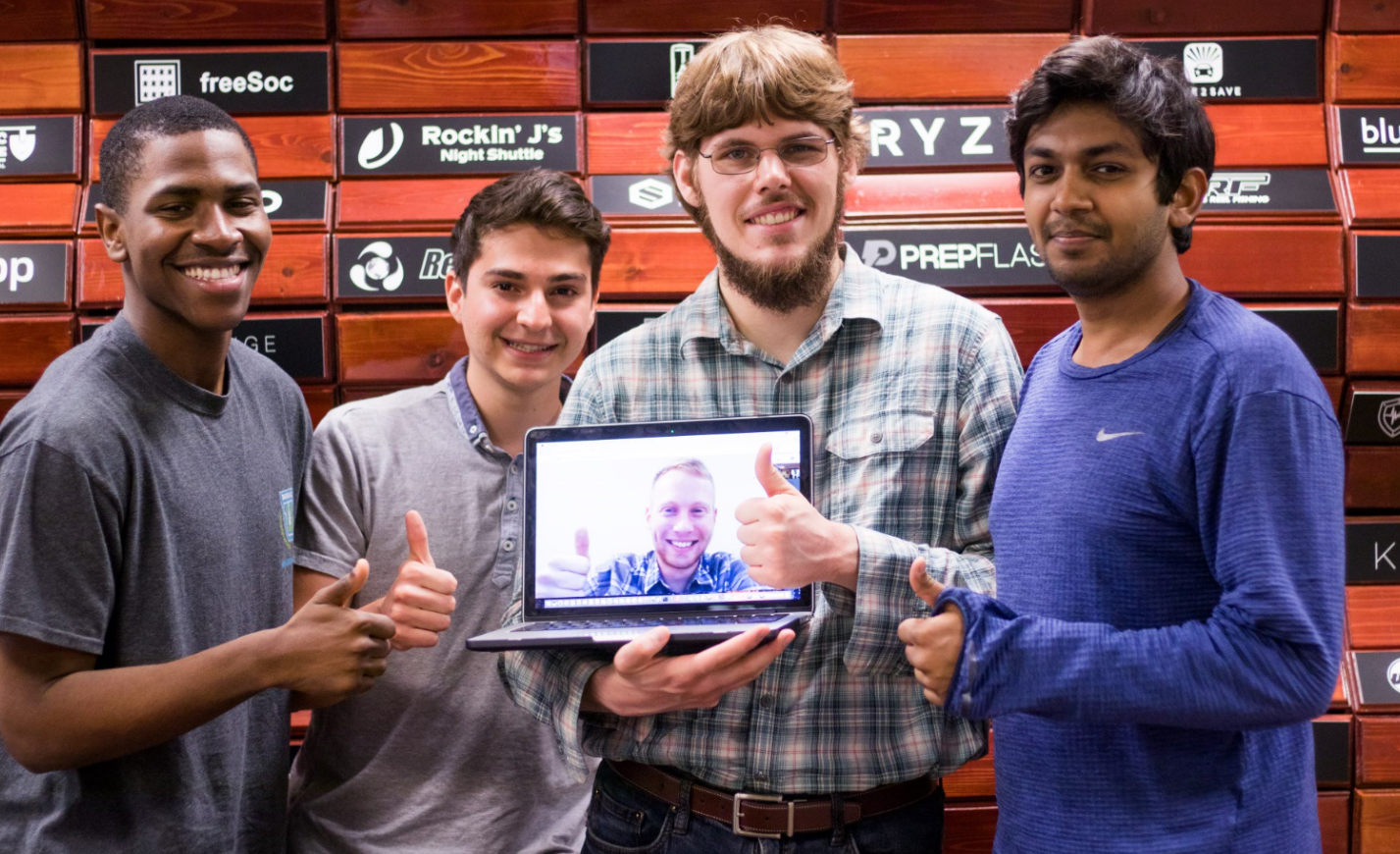Startup Spotlight: VIZE
February 19, 2019
|
Mays Business School
Many people believe an entrepreneur is someone who starts a business, but at their core entrepreneurs are simply problem solvers.
While studying to receive a degree in International Studies, Bryce Watson ’16 was invited to travel to China to aid a local non-profit. During his time there, Watson heard countless stories of the harsh working conditions that factory employees faced every day. Employees worked 80-hour weeks in dangerous environments for little pay, and many had been seriously injured on the job. By the end of his trip Watson had heard enough. He returned to Texas A&M University determined to find a way to improve workers’ rights in developing nations. “I wanted to do something about this,” Watson said. “I didn’t just want to learn about it, I wanted to solve the problem.”
Watson quickly realized he was attacking a complex issue. “We started to discover that these multi-national corporations have hundreds of sub-contractor manufacturing facilities that are only audited once or twice a year,” he said. “They have very little incentive to make sure their operating procedures are safe for their employees.”
Watson decided it would be much more effective to empower the local workforce rather than wrestle with giant corporations. “I wanted to attack this problem from the bottom-up rather than the top-down.”
Vize provides a two-fold solution. First, they connect top-rated factories with qualified individuals looking for jobs. In addition, Vize provides a platform for workers to anonymously rate and review factories without fear of repercussion. “Factories are in desperate need of employees due to the global labor crisis,” Watson said. “There’s an abundance of jobs but not enough workers to fill them all. Now workers have power over their lives.”
Watson explained that workers will leave jobs that treat them poorly, but often move from factory to factory until they find a fair employer. Vize helps to educate the local workforce on which factories to avoid with the hope that poorly-rated facilities will be forced to improve working conditions in order to recruit employees.
“Glassdoor has the most similar business model to Vize, but we’re in a completely different market,” Watson said. “No one is focusing on emerging markets.” When asked why this is Watson simply responded “because Startups come from Silicon Valley and these issues aren’t in Silicon Valley. If you aren’t aware that these problems exist you’re not trying to solve them.”
If you have an idea, go do it
Vize isn’t Watson’s first adventure in entrepreneurship. During his time at Texas A&M he co-founded both a non-profit and a student organization, and was always interested in solving big problems. Eventually these ventures fizzled-out but he learned from every failure. “If you have an idea, go do it. Like, right now! You’re almost certainly going to fail, but that’s OK. It’s worth at least trying, especially if you believe in it.”
Watson knew Vize could make a real impact and was determined to make his startup a success. He leveraged student resources such as Startup Aggieland and Blackstone Launchpad to connect with fellow student entrepreneurs and mentors. “Being an entrepreneur is hard. Build a team of people who make up for your weaknesses.”
Watson also began taking classes focused on entrepreneurship. That’s how he met Richard Lester, Executive Director of the McFerrin Center for Entrepreneurship. During his time as a graduate student, Watson enrolled in Lester’s “Foundations of Entrepreneurship” course and developed Vize’s business model as a part of the course’s final project.
“Bryce was always really creative,” Lester recalled. “He found a student organization on campus, a type of coding club, who would help develop his prototype.” When asked about Watson’s progress throughout the course Lester said that “he pivoted a lot.” But that he was always focused on the workers he was helping. “He’s trying to do the right thing. [Vize] maintains the anonymity of workers so they can freely discuss issues that can be taken to the factories and hopefully be addressed. He wants to improve working conditions for people who are powerless.” Dr. Lester currently serves on the Vize Advisory Board.
Being an entrepreneur is hard work, especially when you’re a student, but Watson insists this shouldn’t deter one from going after an idea. “Use the resources you have while you’re in school,” said Watson. “Take classes to help your idea grow. Tailor your courses to work with professors whose expertise aligns with your project. There will never be another time in your life like this.” Many entrepreneurs hesitate to launch their venture because they don’t believe it’s the right time, but not Watson. “I realized I don’t have to wait until XYZ happens, I should start right now.”
Watson graduated with a Master’s of International Affairs in May of 2018 and serves as the CEO of Vize. Several of the other founding members of the company are current students. Vize just completed a successful crowd-sourcing campaign on IndieGoGo. They officially launched their mobile app in October; available for download in the Google Play store. They’ve already received positive feedback from communities in Mexico and have several factories who are major advocates for Vize.



